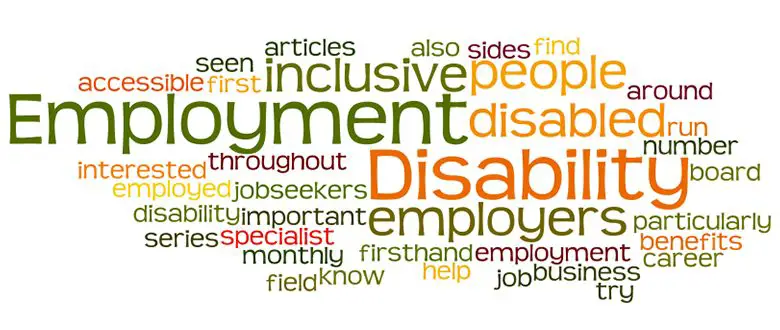
Disability and employment: talking about your disability
Jane Hatton, who manages Evenbreak, a not-for-profit jobs board run by disabled people for disabled people, publishes her bi-monthly article on the subject of disability and employment. This month, talking about your disability in interview.
Generally speaking, looking for work is the same whether you are disabled or not. You’ll need to find an appropriate role and then prove to the prospective employer that you are the best person for the job. However, if you are disabled, there is the added issue of when and how to talk about your disability.
When to talk about your disability
By law (Equality Act 2010), an employer is not allowed to ask you questions relating to health or disability until they offer you the job. The exception to this is if they need to do so for monitoring purposes or in order to provide reasonable adjustments in the recruitment process.
In a previous article I talked about the best time to mention your disability, if at all. The answer was, of course, that it depends on your circumstances and the role. In this article, I’d like to explore that a little further.
If your disability is not visible or obvious in any way, then the decision as to whether, and indeed when, to mention it is completely up to you. If it is visible (for example, because you use a wheelchair) or obvious (because you have a speech impediment) then the employer will be aware of it at least by the interview stage.
What to say when talking about your disability
Whether or not it is by choice, if you’re going to discuss your disability, you need to put some thought into how you might do this.
If the subject of your disability, or an occasion to mention it, doesn’t come up until after you have been offered the job, then the decision is based on what you might gain by telling them. Usually, this would be because you need them to make any reasonable adjustments you need in order to perform at your best. This could be anything from a piece of specialised equipment, to asking theme to simply explain things very carefully to you if, say, you are autistic and tend to take things very literally.
If the topic is raised during the recruitment process, then there are a number of things to consider.
The first thing is to allay any concerns you think they might have regarding your disability. Concerns will usually revolve around cost and/or performance, so let them know that neither of these will be an issue.
For example, if you are sight-impaired and will need expensive equipment, you could tell them that Access to Work will provide you with a large screen, or voice recognition software, so they won’t have to pay for anything.
Highlight skills gained because of your disability
Reassure them that your performance was as good, accurate and quick as your colleagues in your previous role (or more so, if it was). It may, in fact, be that your disability gives you an advantage. For example, if you are autistic, you might prefer to work without distraction, meaning you are far more productive than staff who might spend time chatting. Or it might be that your attention to detail is better than most people’s. These are positives worth highlighting.
There may also be other benefits you can mention if the subject is raised by you or them. In order to survive in a world not designed for disabled people, you will have developed an array of skills, such as creativity, determination, innovation and persistence. These are all attractive qualities to an employer.
Try to anticipate what their concerns might be, put them to rest, highlight any support or positives that might be available, and then go back to discussing your skills and talents and why you would be the right person for the job.
By Jane Hatton
Check out…
- Answering difficult interview questions
- Top 10 tips to help take control of your money
- Employable Me: uncovering issues with disability and employment
Get in touch by messaging us on Facebook, tweeting us @DHorizons, emailing us at editor@disabilityhorizons.com or leaving your comments below.